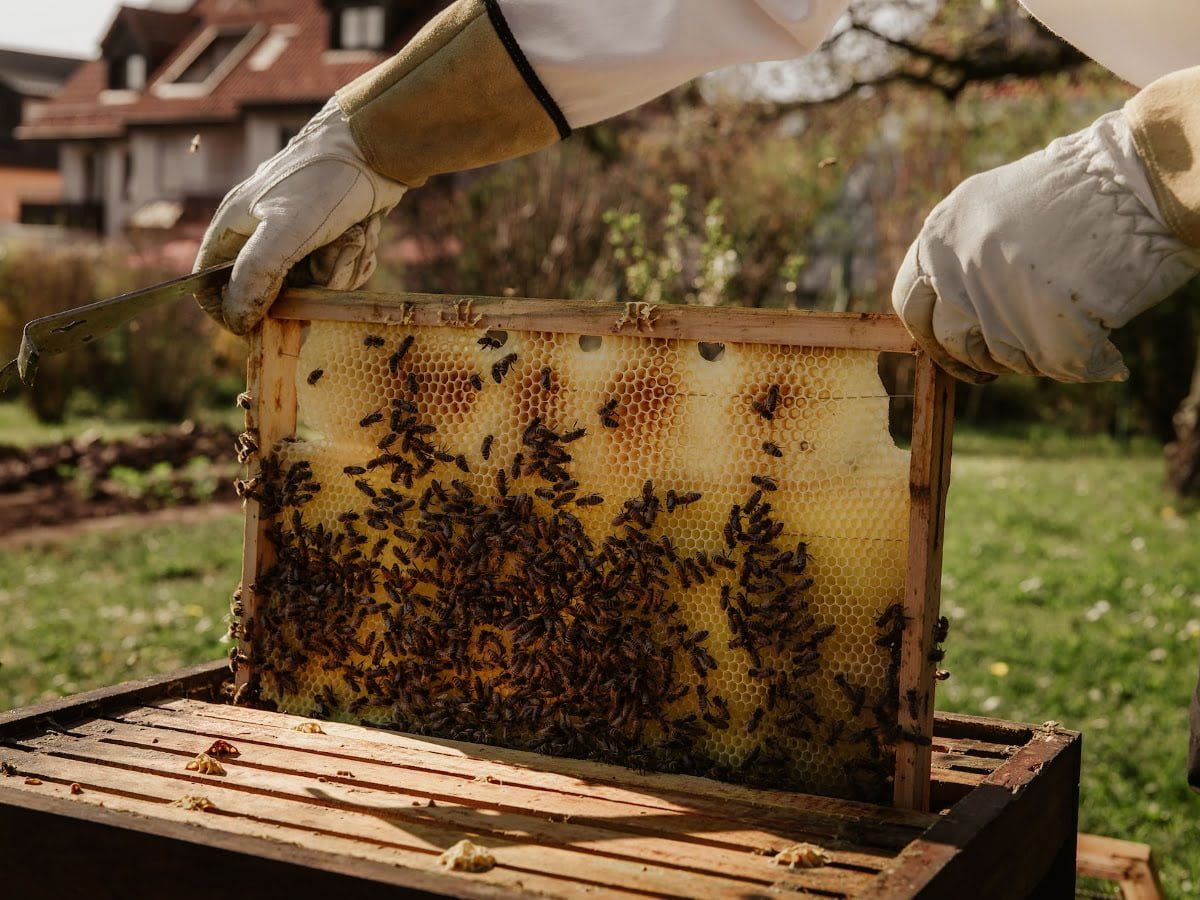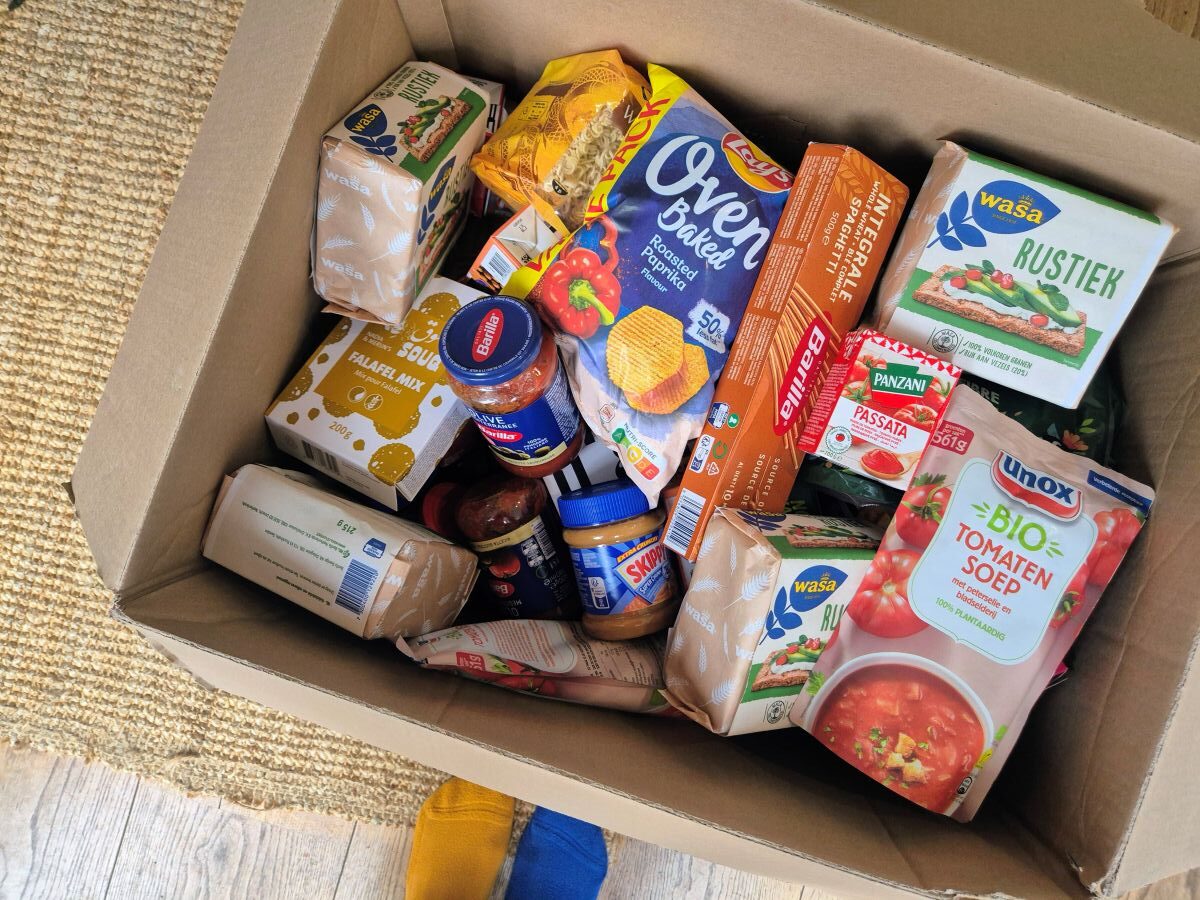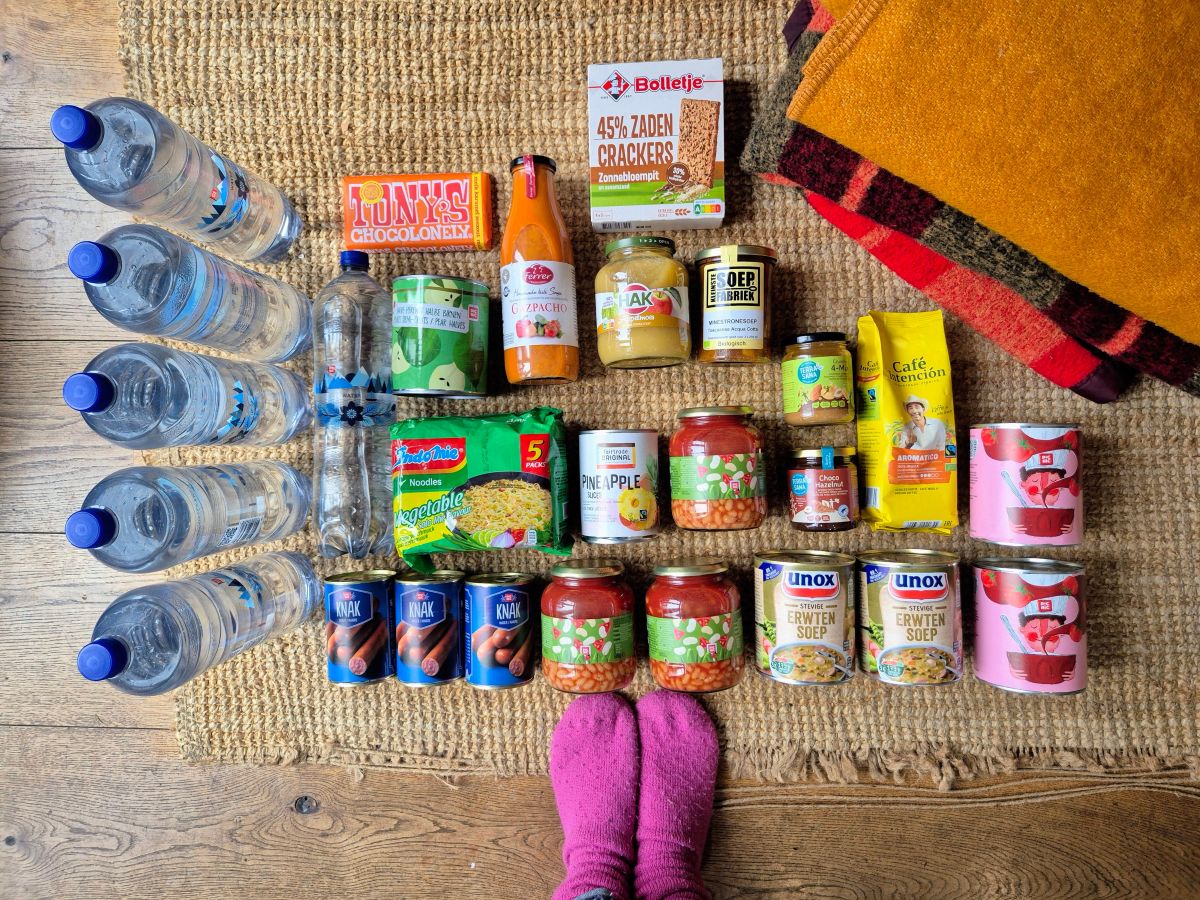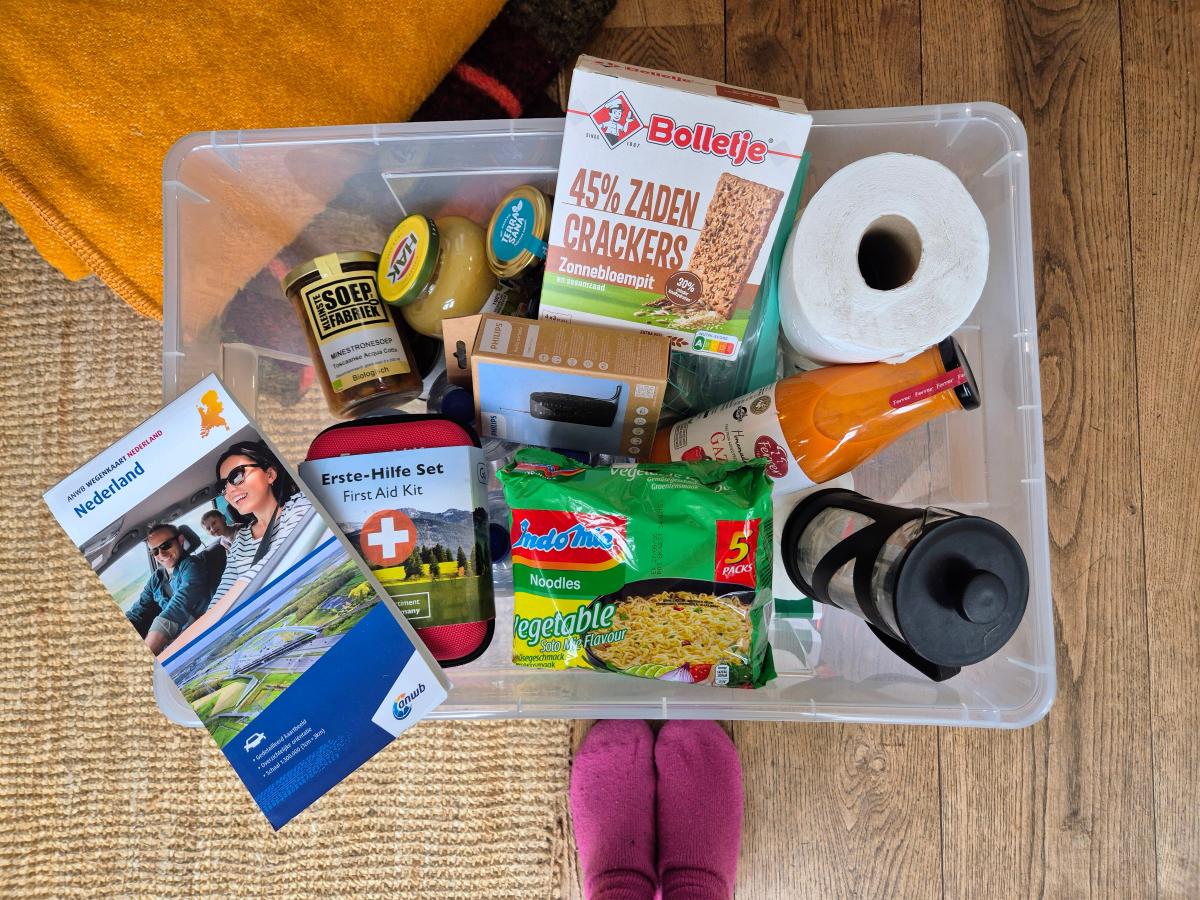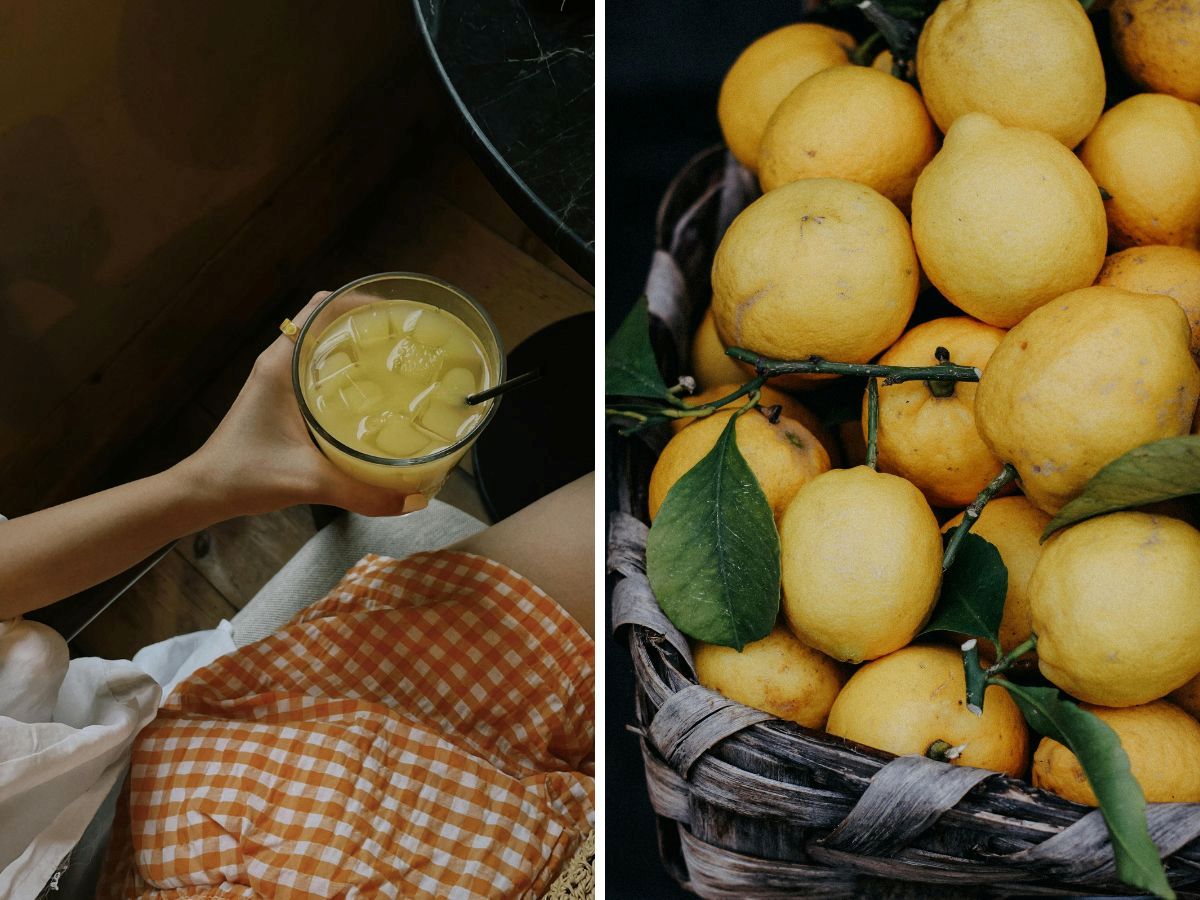Did you know that honey is the only insect-made food that can be eaten by humans? CAN be, because not everyone is a fan of honey. Vegans, for example, do not eat honey because honey is an animal product. Does sustainable honey even exist? Is it not so bad that we harvest some of the bee honey for our own consumption? Is the honey industry pure, or as bad for animals and the environment as other animal industries? Busy bee Leonie set out to find out whether sustainable honey exists or not.
More beekeepers, more sustainable honey?
Keeping bees for honey seems both animal-friendly and environmentally friendly. As you may know, the bee is increasingly dying out, threatening the pollination of flowers and plants, and thus their survival. So isn't it actually very good and sustainable if beekeepers keep bees? So don't they, by definition, make sustainable honey? Unfortunately no. The many honey bees that beekeepers breed actually threaten the survival of the 357 species of wild bees in the Netherlands. Those wild bees may not produce honey, but they are much more important for the pollination of plants and flowers than the honey bee. This is because honey bees bring almost all the pollen to the hive instead of transferring it to flowers along the way. Also, honey bees visit different plants and flowers than wild bees. So for the environment, all hobby beekeepers are not ideal. So responsible honey does not come from this.
Sugar water instead of honey
Bees make honey purely as food for themselves. They do this to survive the winter and stay healthy. However, producers of honey - especially the big companies - naturally want to harvest as much honey as possible. Therefore, the beekeeper often replaces the honey the bee stores as a food reserve and gives sugar water in its place. The composition of this sugar water is very different from that of honey, which contains essential nutrients for the bee. This gradually weakens the bees and makes them more susceptible to diseases and mites. So honey is not animal-friendly.



Honey production is not an animal-friendly process. Yet there is better honey and even vegan honey that is just as sweet and delicious.
‘Super bee’ does not ensure sustainable honey
In recent decades, the breeding and interbreeding of honey bees has now created a kind of ‘super bee’. This bee produces more honey than ever. This does sound a bit like bio-industry, doesn't it? Unfortunately, it indeed does not appear to produce sustainable honey. Besides genetic manipulation, the queen is often artificially inseminated. Seed for that insemination is obtained by squeezing the abdomen of a bee. Ten to 12 seed retrievals are needed for one insemination. Before insemination, the queen is rendered unconscious. In addition, her wings are often clipped to ensure that she does not fly away, and the colony follows her.
A surplus of honey bees
To ensure enough food for the bee, beekeepers place their hives with honey bees mostly in areas where there is plenty of pollen. In doing so, they do not take the wild bee into account. The overpopulation of honey bees in the area causes a food shortage for the wild bees. This drives them out of the area, resulting in far fewer flowers and plants being pollinated and even less food in the future. Honey bees can also transmit diseases to wild bees. So again, unfortunately, we cannot say that beekeepers provide sustainable honey.
Harvesting honey
So the honey bee threatens the wild bees, but the process of harvesting honey is not exactly pleasant for the honey bee itself. Even among hobby beekeepers, who usually try to take care of their bees as best they can, bees always die when harvesting the honey. Whether this honey is labelled as sustainable honey or not. The bees are buried under the honey or crushed. A lot of honey in the supermarket comes from big companies. Some of these companies kill the entire bee population by default after harvesting the honey. This is cheaper than making sure the bees have enough to eat in winter.
Sustainable alternatives to honey
No fine conclusions, then, in this quest to find out whether honey is sustainable. Fortunately, people do not need honey at all. While honey soothes the throat, it has no other medicinal properties. You can use perfectly sustainable alternatives to honey as a sweetener, such as agave syrup, maple syrup, molasses syrup, coconut flour syrup or date syrup.
Do you really want to use honey anyway, but a bit more sustainable than the standard varieties? Then at least try to find out whether the bees are not fed sugar water and whether the beekeeper works in a traditional way. In harmony with nature. For example, all honey that is The Body Shop used in its products is sustainably produced. The honey from Odin is more sustainable and comes from their own biodynamic apiary. Otherwise, buy organic honey anyway; these bees are more likely not to have been fed sugar water.
Sustainable honey: yes or no?
Rather surprised, after my facts about honey above, I must conclude that sustainable honey probably does not exist. There is certainly a difference in animal-friendliness and environmental friendliness between different types of honey, but there is no doubt that honey is essentially meant for the bee itself, not for humans. Should honey really be a essential are in your household, at least choose organic honey.
More sustainable food tips from thegreenlist.nl
- Soy has a bad reputation. But what about it really? Read all about soy in this article.
- Palm oil also has a bad reputation. In this article, you will find out that it is not as black and white as you may think.
- Wondering how sustainable jackfruit is? Then quickly read this article on jackfruit.
Sources: Vegan cooking.nl On why vegans don't eat honey. Also on .VeganChallenge.nl is shared why vegans don't eat honey. Also, the Dutch Association for Veganism Talks about honey and veganism. Opie article from Odin cooperative On ‘Beewashing’. Ekoplaza Maastricht Informs on organic honey. Photo credits: main image: Bianca Ackermann (Unsplash), honey: Micheile dot com (Unsplash), beekeeper with yellow gloves: Anete Lusina (Pexels), bees on wood: Johann Piber (Pexels).

